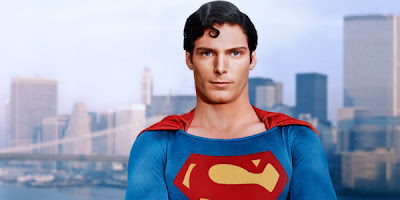 |
| "Yeah, we're hot shit. You don't have to like it. We don't care. We love it." |
Rebecca Anh is a badass.
As the head of the eponymous Bling Ring in Sofia Coppola's fictionalized account of the smash-and-grab queens and king of Calabasas who stole millions in clothes, trinkets, and trash from Young Hollywood between 2008-2009, ice water doesn't run through her veins because those suckers are probably beyond frozen.
Rebecca, played wonderfully by Katie Chang, is cool in the way that I haven't seen since, maybe, Denzel's performance as Frank Lucas, truly his most glorious riff on Alonzo Harris since Training Day. She is the heartless, ambitious, amoral gangster fantasy reshaped into a delicate frame that cares more about Louboutins than Pinstripes. She is unflappable. She is confident. She is sociopathy personified. And I love it.
We don't see characters like Rebecca as much as we used to in the days when the gangster film ruled the screens. Great work like Goodfellas and the Sopranos humanized organized criminals to the point that they became so relatable that they were no longer threatening.
Shute, the last time we had a character even remotely close to Rebecca Lee was Denzel Washington's Frank Lucas. Now, there was the definition of a smooth operator, at least on film. Neither Frank Lucas nor Rebecca Lee are particularly accessible or relatable to the average moviegoer. They're too detached, too above it all. They're probably not even be aspirational figures to another segment of the audience--again too reticent, not pretentious or flashy enough--but they are something else. They are not what any of us want to be but something we all wish we could be at all times: cool.
Yes, they do terrible things. They steal. They poison. They destroy. But these are actions borne of an an understanding of the world that is simultaneously deeper and lesser than any of us will ever know. They understand that nothing's fair and rules are inconveniences. They comprehend the simple fact that taking what they want is more than acceptable its essential. It is a sad truth that so many of us know so wheel, but mostly as victims. Yet, to see these characters do such things, often at the expense of the self same members of society that would do the same to us, and to do so without blinking an eye, well, that taps right into an ugly little truth at our core: if we could take what we wanted and hurt nobody, or at least those who can take care of themselves, we would probably do it.
That ethos is what makes The Bling Ring such a great film. The teens thieves in The Bling Ring are vapid, shallow and obsessed with things that absolutely don't matter, but I'm typing this on an iPad that millions of people have or want because luxury, however ephemeral, is intoxicating. The Bling Ring is our id, but trendier. It reflects a part of us that some of us don't want to acknowledge and others actively rail against. But, that part of us is in there, creeping right along the edges our psyches anytime we see a free dollar in the street or a bargain basement sale of designer brands or high-end electronics. To see that story writ large-ish, is unquestionably cathartic.
Much has been made in various articles about Coppola's view of her subjects. Does she deplore these kids who she swears she didn't want to make any more famous? Is she ambivalent? Is she mad as hell that they managed to get one over on her and the other 1%? Is she ashamed that she probably would have done the same thing if given half the chance when she was their age? She is possibly all of these things, and so are we. That is why it works. It taps into the fact that many of us feel equally ambivalent, reviled, and entranced by these kids. The fact that it is more cohesive, detached, and low-key than Harmony Korine's Spring Breakers doesn't hurt, though Spring Breakers clearly benefitted from James Franco's dynamite performance as a more electric version of the sociopath who leads a handful of misguided teen girls astray. The Bling Ring emanates cool, the kind these kids would want to be, the kind we don't often get amongst the over-eager bombast of the summer.
The Bling Ring is the second film I have seen this summer that I have desperately wanted to see more than once. The first? Fast and Furious 6. Another flick about cool, but decidedly more hotblooded and noticeably less hip, criminals living life by their own rules, even if its a dumb rule like living life a quarter mile at a time, and taking what they want (though less so in this entry than the last).
These two movies are worlds apart, but at their core they are about criminals who are patently, unrealistically unafraid to live outside of law and society's rules. Criminals who are supposed to be deplorable, despicable, but are oh so enticing because they are a little bit of who we don't want to be and a lot of who we are.





